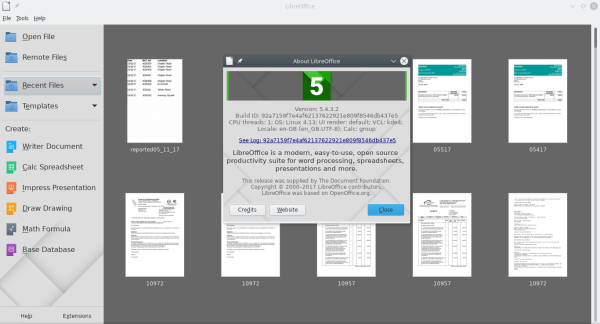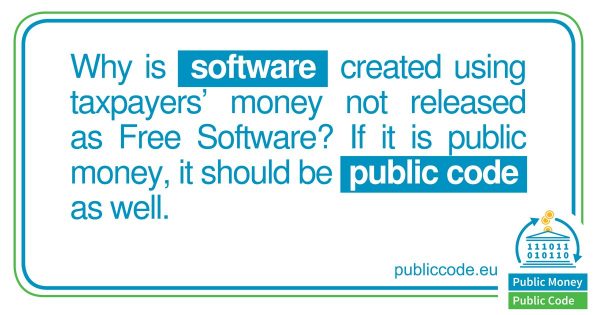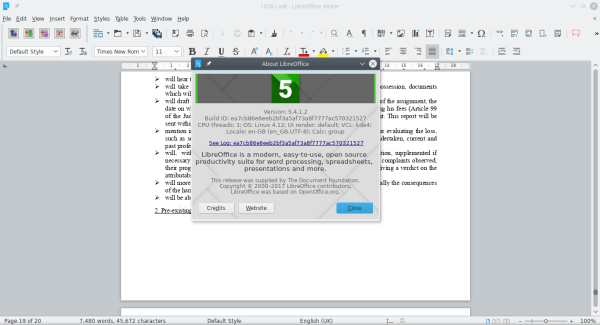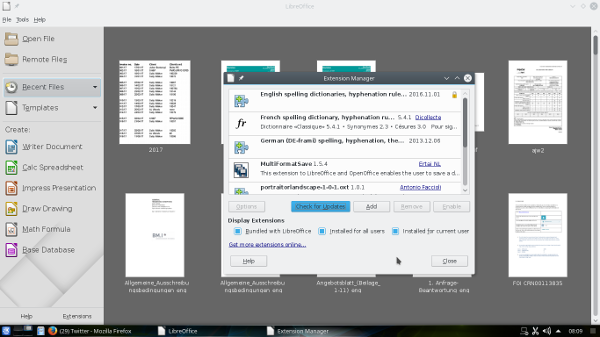LibreOffice 5.4.3 released
Yesterday The Document Foundation (TDF) announced the release of LibreOffice 5.4.3, the third minor release of LibreOffice 5.4 family, which includes some 50 bug and regression fixes.
LibreOffice 5.4.3 represents this free and open source office suite’s very latest in terms of features and is therefore targeted at technology enthusiasts and early adopters.
TDF recommends that more conservative users and companies deploy LibreOffice 5.3.7, as well as seeking support from certified professionals.

Download LibreOffice
LibreOffice 5.4.3 is available for immediate download for all major operating systems – Linux, MacOS and Windows.
Your ‘umble scribe has now downloaded and installed the latest release and it works beautifully.
Donate to LibreOffice
LibreOffice users, free software advocates and community members can support The Document Foundation with a donation. Donations help TDF to maintain its infrastructure, share knowledge and organise events such as the Month of LibreOffice, which has last week and will be active until the end of November (https://blog.documentfoundation.org/).
Finally, several companies sitting in TDF’s Advisory Board provide either value-added long-term support (LTS) versions of LibreOffice or consultancy services for migrations and training.






